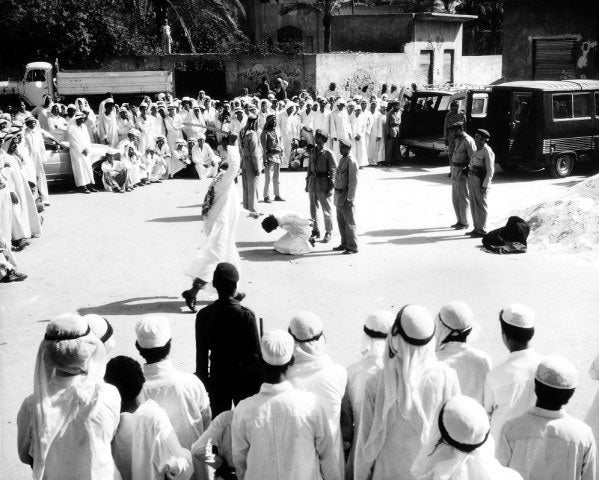Fate of another royal found guilty of adultery

Your support helps us to tell the story
From reproductive rights to climate change to Big Tech, The Independent is on the ground when the story is developing. Whether it's investigating the financials of Elon Musk's pro-Trump PAC or producing our latest documentary, 'The A Word', which shines a light on the American women fighting for reproductive rights, we know how important it is to parse out the facts from the messaging.
At such a critical moment in US history, we need reporters on the ground. Your donation allows us to keep sending journalists to speak to both sides of the story.
The Independent is trusted by Americans across the entire political spectrum. And unlike many other quality news outlets, we choose not to lock Americans out of our reporting and analysis with paywalls. We believe quality journalism should be available to everyone, paid for by those who can afford it.
Your support makes all the difference.By claiming asylum in Britain, the Saudi princess is seeking to avoid the fate of another member of her royal family who was executed after admitting adultery.
Princess Mishaal bint Fahd al Saud, the 19-year-old great-niece of the late King Khalid, was shot several times in the head in 1977. Her death is thought to have been ordered by her grandfather, Muhammad bin Abdul Aziz al Saud, the King's older brother. She was unmarried but had confessed that she had committed adultery.
The killing became the focus of an international outcry in 1980 when the docu-drama Death Of A Princess was shown on teleivison. Saudi authorities tried to get the film suppressed and, when that failed, they expelled the British ambassador to Riyadh, withdrew 400 members of their royal family from Britain and cancelled millions of pounds worth of exports.
Most executions carried out in the kingdom are by beheading in a public square, but stoning is the technique reserved for married people convicted of adultery. Among the offences which rank beside adultery as capital crimes are murder, drug-trafficking and sodomy.
In 2008, Saudi courts ordered the executions of 102 people for various offences, a fall from the record 156 people put to death in 2007. Forty women have been executed since 1990. In a report last year, the human rights group Amnesty International said at least one woman was facing the possibility of execution for adultery. The woman had been married to a Saudi who died six years beforehand. She was arrested in 2005 after giving birth to a girl and was sentenced to death by stoning. Her fate is unclear.
A couple from Sri Lanka working in Saudi Arabia were convicted of adultery in March and sentenced to death by stoning. The sentence was reduced to six years in prison and 700 lashes. A 23-year-old Saudi woman was sentenced to 100 lashes and a year in prison earlier this year after being gang-raped. She became pregnant and was arrested when she tried to arrange an abortion.
Join our commenting forum
Join thought-provoking conversations, follow other Independent readers and see their replies
Comments